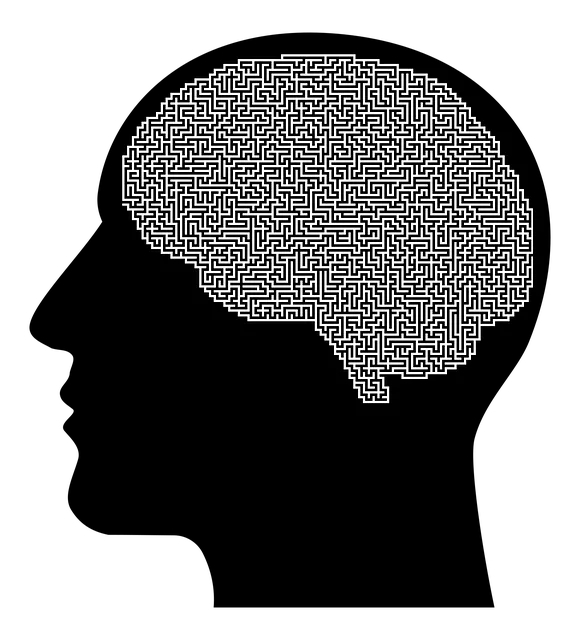In today's world, where mental health issues are prevalent and access to care is often limited, Kaiser Permanente mental health facility in Parker offers a transformative solution through its Mental Wellness Coaching Programs. These programs provide personalized support for self-improvement and resilience, addressing anxiety, depression, and cultural barriers using Conflict Resolution Techniques and Cultural Sensitivity. The holistic approach integrates mental wellness coaching into primary care, focusing on education, mindfulness, stress management, and building resilience. The tailored program at Parker combines extensive mental health education with individualized coaching, empowering individuals to manage their well-being effectively while fostering healthier communities.
Mental wellness coaching programs are gaining recognition as essential components of holistic healthcare. This article explores the development of such programs, focusing on the successful Kaiser Permanente model integrated care approach and the key elements exemplified at Parker Mental Health Facility. We delve into strategies for creating sustainable initiatives, emphasizing their impact on improving access to mental health support. By examining these aspects, we aim to highlight the potential for coaching programs to revolutionize healthcare, drawing from real-world examples like Kaiser Permanente and Parker.
- Understanding the Need for Mental Wellness Coaching Programs
- The Kaiser Permanente Model: A Leading Example of Integrated Care
- Key Components of an Effective Mental Health Coaching Program at Parker
- Strategies for Developing and Implementing Sustainable Coaching Initiatives
Understanding the Need for Mental Wellness Coaching Programs

In today’s fast-paced world, mental wellness is a cornerstone of overall health and well-being. This needn’t be overlooked, especially in communities where access to mental healthcare is limited or stigmatized. Recognizing this gap, organizations like Kaiser Permanente have established mental health facilities that offer comprehensive services. However, there’s a growing demand for personalized support, which is where Mental Wellness Coaching Programs step in as transformative solutions. These programs cater to individuals seeking not just treatment but also tools for self-improvement and resilience.
The development of such coaching initiatives is particularly pertinent given the rising rates of anxiety, depression, and other mental health disorders globally. Incorporating Conflict Resolution Techniques and Cultural Sensitivity in Mental Healthcare Practice ensures that these programs are inclusive and effective. By empowering individuals with strategies to manage stress, resolve internal conflicts, and navigate cultural barriers, Mental Wellness Coaching can be a proactive approach to Depression Prevention, ultimately fostering healthier communities.
The Kaiser Permanente Model: A Leading Example of Integrated Care

The Kaiser Permanente Model stands as a leading example of integrated care, seamlessly integrating mental wellness coaching into primary healthcare settings. Located in Parker, this mental health facility showcases a holistic approach where physical and psychological well-being are treated in tandem. Patients at Kaiser Permanente benefit from a comprehensive range of services, including mental health education programs designed to empower individuals with coping strategies for stress, anxiety, and even depression prevention.
Through this model, mental wellness coaches play a pivotal role in building empathy between patients and healthcare providers. By fostering strong connections and offering tailored support, these coaches enhance the overall patient experience. The Kaiser Permanente approach emphasizes the importance of early intervention and proactive mental health management, setting a benchmark for effective integrated care that improves access to services and promotes better outcomes.
Key Components of an Effective Mental Health Coaching Program at Parker

At Parker, the development of an effective mental wellness coaching program involves integrating key components tailored to meet the unique needs of individuals seeking support at the Kaiser Permanente mental health facility. One of the cornerstone elements is a comprehensive mental health education programs design that equips clients with knowledge and skills to manage their well-being effectively. This includes teaching stress management techniques, mindfulness practices, and coping strategies to address common challenges like anxiety relief. By fostering an environment of learning and self-discovery, individuals gain insights into their mental health dynamics.
Additionally, the program emphasizes a personalized approach, recognizing that every individual’s journey is distinct. Coaches work closely with clients to set achievable goals, providing tailored guidance and support. This holistic strategy incorporates not only anxiety relief strategies but also focuses on building resilience, enhancing self-esteem, and promoting positive lifestyle changes. The goal is to empower individuals to navigate life’s challenges with greater confidence and a deeper understanding of their mental health awareness.
Strategies for Developing and Implementing Sustainable Coaching Initiatives

Developing sustainable coaching initiatives within a mental health facility, such as Kaiser Permanente’s Parker location, requires a multifaceted approach. Firstly, assess the unique needs and challenges faced by the community served by the facility. This involves understanding the cultural landscape and incorporating Cultural Sensitivity in Mental Healthcare Practice to ensure inclusive and effective services. Engaging with stakeholders, including healthcare professionals, coaches, and community leaders, facilitates a collaborative environment that fosters innovation and adaptability.
Implementing these initiatives can be streamlined through structured programs like Mental Wellness Journaling Exercises, which encourage self-reflection and personal growth. Crisis Intervention Guidance should also be integrated to provide immediate support during times of distress. Regular evaluation and feedback mechanisms ensure the program’s effectiveness and allow for continuous improvement, aligning with best practices in mental healthcare delivery.
Mental wellness coaching programs are increasingly vital in modern healthcare, as evidenced by successful initiatives like Kaiser Permanente’s integrated care model. The case study of Parker Mental Health Facility highlights key components that contribute to effective coaching, such as personalized strategies and a holistic approach. By learning from these established programs, we can develop sustainable coaching initiatives that enhance mental health support within various healthcare settings, ultimately improving patient outcomes and well-being.






